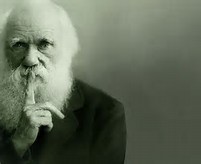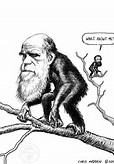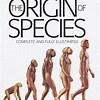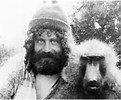‘Pay no attention to the man behind the curtain!” (OZ: “The Great and Powerful Wizard.”)
By the completion of Frank Baum’s classic allegory parable: The Wizard of Oz, everyone sees that the man behind the curtain is a charlatan. For the entire tale, the protagonist have been deceived by an ordinary liar attempting to convince them that he was the Great and Powerful Oz when he had no powers at all except for deception. His obfuscation was revealed when Toto simply pulled back the curtain.[1]
Homo Sapiens started thinking of more than survival, let us say fifty-thousand years ago. I propose that man’s search for clear thinking and truth, was frustrated by three curtains for 49,500 of the 50,000 years. [2]
That is for 99% of the history of the mind. I submit to you: there have been three curtains obscuring the answers men sought.[3]
Curtain number one: The Earth, as an article of faith, was believed to be the center of everything berfore 1473, Nicolaus Copernicus and Galileo took down the first curtain.  Nicholas Copernicus, Renaissance mathematician and astronomer formulated a model of the universe that placed the Sun, rather than the Earth at the center of the universe.Lived: Feb 19, 1473 – May 24, 1543 [4]
Nicholas Copernicus, Renaissance mathematician and astronomer formulated a model of the universe that placed the Sun, rather than the Earth at the center of the universe.Lived: Feb 19, 1473 – May 24, 1543 [4]
Galileo Galileo  15 February 1564– 8 January 1642), “was an Italian astronomer, physicist, engineer, philosopher, and mathematician who played a major role in the scientific revolution during the Renaissance. Galileo has been called the “father of observational astronomy”, the “father of modern physics”, and the “father of science”. His contributions to observational astronomy include the telescopic confirmation of the phases of Venus, the discovery of the four largest satellites of Jupiter (named the Galilean moons in his honor).”[5]
15 February 1564– 8 January 1642), “was an Italian astronomer, physicist, engineer, philosopher, and mathematician who played a major role in the scientific revolution during the Renaissance. Galileo has been called the “father of observational astronomy”, the “father of modern physics”, and the “father of science”. His contributions to observational astronomy include the telescopic confirmation of the phases of Venus, the discovery of the four largest satellites of Jupiter (named the Galilean moons in his honor).”[5]
.
Curtain #2 THE BIOLOGY Before the nineteenth Century humans were believed to be a unique creation among living things.
Darwin’s unparalleled epiphany announced that all life, including man, has a common ancestor. Man shares nearly all the qualities of animals, with some skills unique to humans.
1859 Charles Robert Darwin, FRS  was an English naturalist and geologist, best known for his contributions to evolutionary theory. He established that all species of life have descended over time from a common ancestor.[6]
was an English naturalist and geologist, best known for his contributions to evolutionary theory. He established that all species of life have descended over time from a common ancestor.[6]
Feb 12, 1809 – Apr 19, 1882 (age 73) Charles Darwin’s “On the Origin of Species” has been voted the most influential academic book in all history in an online poll. Darwin’s book, which founded evolutionary biology when it was published in 1859, was the undisputed winner with a quarter of the votes submitted by the public. The poll asked voters to choose from 20 books that were selected by experts.[CNN]
On the Origin of Species, published on 24 November 1859, is a work of scientific literature by Charles Darwin which is considered to be the foundation of evolutionary biology. Its full title was On the Origin of Species by Means of Natural Selection, or the Preservation of Favoured Races in the Struggle for Life.
There is a mountain of evidence demonstrating an·thro·po·mor·phism, the attribution of human characteristics or behavior to an animal, “human” qualities” in non-human animals.The following link, by Robert Sapolsky, graphically reveals the great extent of common qualities and the few, critical differences relating humans and non-human animals. The evidence is overwhelming that homo Sapien is an animal with a few skills unique to humans. [7]
The link requires 15 minutes to view but is highly relevant and well worth your time.
https://www.ted.com/talks/robert_sapolsky_the_uniqueness_of_humans ?
Professor Sapolsky living with Baboon tribe. [6]
In addition is the illustrative Story of The alpha wolf, Twenty-one of Yellowstone: [10]
The Third Curtain is Fear; Mortality. (It is said:”The brave man dies but one; the coward dies a thousand deaths.)
Until five hundred years ago, humans interpreted their perceptions to be the reality. Many people in the Twenty-first Century fail to recognize how te mind can be misled. Perception is often distorted and never absolute when tested objectively. I believe it is likely that humans have sought reality and truth from the dawn of civilization. The recognition of mortality causes Fear. Fear un-docks the mind from certainty which accentuates the fear. The lack of certainty makes man aware of the unknown. I do not believe that humans fear adversity; but unknowns. Defending against the unknown leads to the construction of stories. Story telling apparently dates from the invention of language and is the beginning of that which we call “history.” Many of these stories are the basis of the “Western Canon”.
“Human megalomania [has] suffered its third and most wounding blow from the psychological research of the present time which seeks to prove to the ego that it is not even master in its own house, but must content itself with scanty information of what is going on unconsciously in its mind.” [3]
In spite of the opinions of many critics of Freud’s period, 1895, only a little over a hundred years ago is a useful milestone to mark the beginning of attempts, with some objectively, to examine the mind. Psychoanalysis was founded by Freud, who wrote about his theory and method from until he died in 1939. Over those years, and after his death, he attracted both admirers and detractors . The human mind has only begun to peek behind the third curtain.
David Kahneman…framing choices to people’s tendency to substitute an easy-to-answer question for one that is harder several decades of academic research … suggest that people place too much confidence in human judgment. [11] cf. David Eagleman [12]
Conclusion: I believe that scientists, physicians, psychologists, and humanists have only partly pulled back the third curtain.
A hundred years after psychoanalysts, psychiatrist, neurologist, neurophysiologist, and neurosurgeons, scientist are not certain but that we are not just nice stories we tell ourselves and each other.
We are faced daily by “authoritative wizards” hiding behind this third curtain.
Let us listen to Abraham Lincoln and attempt to “bind up the nation’s wounds, to care for him who shall have borne the battle… to do all which may achieve and cherish a just and lasting peace among ourselves and with all nations.”
“With malice toward none, with charity for all, with firmness in the right as God gives us to see the right, let us strive on to finish the work we are in, to bind up the nation’s wounds, to care for him who shall have borne the battle and for his widow and his orphan, to do all which may achieve and cherish a just and lasting peace among ourselves and with all nations.”Abraham Lincoln
Dedicated to Mrs. Bonnie Brown, Biology Department, Maryville College, 1952-1956
Charles Clanton Rogers, AB, MD, FACR, emeritus professor, GWU November 24, 2015
Please leave a comment. ReBlogs are welcome.
References:
[1] L. Frank Baum, Wizard of Oz, Published: Dec 31, 1899, Publisher: Public Domain
[2] Yuval Noah Harari, Sapien, “A Brief History of Humankind”.
[3] In 1916, Sigmund Freud delivered the eighteenth of his Introductory Lectures on Psychoanalysis. There, he spoke about the three great blows that “the naïve self-love of men has had to submit to … ” It has since been suggested that psychoanalysis never really existed as an truism that can be applied to almost any movement or school in history): all our minds have are the stories we tell ourselves.
[4] Nicholas Copernicuss, De revolutionibus orbium coelestium (On the Revolutions of the Celestial Spheres) 1543
[5] Galileo Galilei, Dialogue Concerning the Two Chief World Systems (1632; in Italian Dialogo dei due massimi sistemi del mondo)
Discourses and Mathematical Demonstrations Relating to Two New Sciences (1638; in Italian, Discorsi e Dimostrazioni Matematiche, intorno a due nuove scienze)
[6] Charles Darwin, On The Origin Of The Species, 1859Lived: Feb 12, 1809 – Apr 19, 1882
[7] The Amazing Inner Lives of Animals, Tim Flannery OCTOBER 8, 2015 ISSUE, Beyond Words: What Animals Think and Feel,
by The Amazing Inner Lives of Animals, Henry Holt
[8] The Cultural Lives of Whales and Dolphins by Hal Whitehead and Luke Rendell, University of Chicago Press, Edwynn Houk Gallery, New York
[9] Robert Sapolsky: The uniqueness of humans | TED Talk | TED.com
http://www.ted.com/talks/
robert_sapolsky_the_uniqueness_of_humans
Video embedded · At Stanford University, primatologist Robert Sapolsky offers a fascinating and funny look at human behaviors which the rest of the animal kingdom ; Salposky “Primate Memoirs
[10] https://yellowstone.net/wildlife/youtube-yellowstone-wolf
[11] David Eagleman, cited by Burchard Bilger, “What a brush with death taught David Eagleman about the mysteries of time and the brain.- The Possibilian, THE NEW YORKER, April 25, 2011 “Ceebrating the vastness of our ignorance.
[12] David Kahneman,Thinking, Fast and Slow, Thinking, Fast and Slow is a best-selling 2011 book by Nobel Memorial Prize in Economics winner Daniel Kahneman which summarizes research that he conducted over decades, often in collaboration with Amos Tversky. It covers all three phases of his career: his early days working on cognitive biases, his work on prospect theory, and his later work on happiness.The book’s central thesis is a dichotomy between two modes of thought: “System 1” is fast, instinctive and emotional; “System 2” is slower, more deliberative, and more logical. The book delineates cognitive biases associated with each type of thinking, starting with Kahneman’s own research on loss aversion. From framing choices to people’s tendency to substitute an easy-to-answer question for one that is harder, the book highlights several decades of academic research to suggest that people place too much confidence in human judgment.
[13] Abraham Lincoln, “Second Inaugural Address, March 4, 1865













Reblogged this on Mass Delusions a.k.a. Magical & Religious Woo-Bullshit Thinking and commented:
This blog post, written by my dear friend Charles Clanton Rogers, is full of both important information and knowledge about the scientific history of mankind.
Professor Rogers shows his readers/followers what was hidden behind the “curtains” of magical beliefs our ancestors used to cling to in their belief and thought paradigms.
I’m most interested in what professor Rogers can tell us about what’s hiding behind the third curtain, because that part of his interesting blog post is about the neuroscientific revolution, still ongoing.
That revolution can, in a way, be said to have started with the discovery that “the Ego is not even master in its own house, but must content itself with scanty information of what is going on unconsciously in its mind.” (A quote from Sigmund Freud.)
And here’s another telling quote from (I believe) professor Rogers himself: “Many people in the Twenty-first Century fail to recognize how the mind can be misled. Perception is often distorted and never absolute when tested objectively. I believe it is likely that humans have sought reality and truth from the dawn of civilization. The recognition of mortality causes Fear. Fear un-docks the mind from certainty which accentuates the fear. The lack of certainty makes man aware of the unknown.”
So true. So full of insight. (That’s why I believe must be from professor Rogers himself.)
One of his many (they are thirteen in all) references is the primatologist Robert Sapolsky, professor at Stanford University, USA. He’s an expert on the uniqueness of humans. And his conclusion is that human behavior is not as unique as we want and prefer to believe. For example: Researchers have found that monkeys and dogs have a clear sense of fairness. Rats show altruism and exhibit empathy. Chimps engage in war.
All these traits were once believed to belong solely to humans, but today we know that they also exist in other members of the animal kingdom.
Lately I read a paper in which the neuroscientist Christopher Petkov and his group at Newcastle University demonstrated/found that macaques and humans even share brain areas responsible for processing the basic structures of language!
And who doesn’t remember Alex the Parrot, who had “intelligent” conversations with his owner Irene Pepperberg, an animal psychologist. Read more about Alex here: https://en.wikipedia.org/wiki/Alex_%28parrot%29 .
According to Sigmund Freud, mentioned in professor Rogers’ blog post, emotions play an important role in our lives.
I fully agree.
In fact, “emotions are not just the fuel that powers the psychological mechanism of a reasoning creature, they are parts, highly complex and messy parts, of this creature’s reasoning itself.”
That quote is taken from a reference not mentioned in the blog post I am now reblogging but from an essay entitled “The Intelligence of Emotions: Philosopher Martha Nussbaum on How Storytelling Rewires Us and Why Befriending Our Neediness Is Essential for Happiness”.
Here’s the link to that essay: https://www.brainpickings.org/2015/11/23/martha-nussbaum-upheavals-of-thought-neediness/ . Absolutely worth reading, too.
Talking of links, here’s another one: http://www.scientificamerican.com/article/what-makes-our-brains-special/ .
I’m sure both professor Rogers and professor Sapolsky are going to like that article (about what makes the human brain so special and unique). And hopefully my own blog readers/followers will, too.
LikeLike
To all my readers: Now here is the comment that an author wants.
bbnewsab has not only been charitable to the post but adds additional information and clarification of a very complex topic. bbnewsab did not mention but I submitted some of the ideas in this post to him before I wrote it and some of content I received from him: the Sapolsky video/ clip and the story of “Twenty-one came from bbnewsab. I have invited this friend to coauthor posts with me but I guess he is shy📍👀😱
LikeLiked by 1 person
Thank you my learned friend for bringing this post to your readers and therefore extending its audience. Thanks also for your contributions to substance and references that you provided. K
LikeLiked by 1 person
Thank you for your kind words, KK!
Because your blog tries to attract music lovers as well (not only book aficionados), it maybe is worth mentioning, also, that not even the habit of being influenced by music is a unique human trait or talent. (And, BTW, here in Sweden many school children learn how to read, and become less shy, by reading loud for a dog that patiently lies at the child’s feet, listening to the story just told to them.)
We all know (I guess) that there are many YouTube videos showing how for example parrots and sealions dance to music played for them.
Here’s an interesting article about animals and their music preferences: http://www.livescience.com/33780-animal-music-pets.html .
And here’s an article about dogs and music: https://www.psychologytoday.com/blog/canine-corner/201204/do-dogs-have-musical-sense .
Did you know, for instance, that dogs normally feel uneasy and agitated when listening to heavy metal music? But, on the other hand, classical music normally has a calming effect on the dogs. (BTW, isn’t it the same with us humans?)
Here’s a forum debate about why dogs often howl while listening to music: http://boards.straightdope.com/sdmb/showthread.php?t=633180 .
Since you’re a genuine cat lover, KK, here’s an article especially for you: http://www.cathealth.com/how-and-why/why-do-some-cats-like-music .
There are some indications that (at least some) cats like piano music. Maybe that’s why they also like walking on the keys? Who knows, maybe a genuine cat lover should be playing Chopin for his/her pet(s)? Soft, relaxing classical piano music. Why not give it a try?
Finally, since you are so interested in all that has to do with music, KK, here’s a link for you (and your likes): http://theconversation.com/what-your-musical-taste-says-about-your-personality-50492 .
In that article you can learn that most people’s musical preferences are linked to three broad thinking styles: 1) Empathisers (Type E) who have a strong interest in people’s thoughts and emotions. 2) Systemisers (Type S) who have a strong interest in patterns, systems and the rules that govern the world. 3) And Type B (= Balanced music lovers). To this latter group belong those of us who score relatively equally on empathy and systemising.
I myself am a type B, i.e. a mix of type E and type S. Some days I long for emotional music, often pop music. Other days I’m looking for beautiful patterns in the music played. Then Bach is one of my favorites.
Listen to this piece, KK: Bach’s “Air” played on a soprano saxophone – and yes, KK, you ARE correct, as a matter of fact I AM just now thinking of your son Steven, another talented sax player, that’s why I chose this special link : https://www.youtube.com/watch?v=0zpaPX_5hwo .)
Or I listen to Vivaldi, for example his Four seasons: https://www.youtube.com/watch?v=nbpAFzyrx5o .
And now a question to all RWT Community members residing here on this wonderful blog: What kind of musical preferences have you got? Are you a type E, a type S or a type B (like me)?
Please, tell us about it here in the comment section of this blog post. What’s your favorite music?
LikeLiked by 1 person
That is an interesting question? I would guess the people reading us would tend toward Classical “B’s” (Bach, Beethoven, Bram) with a dash of more 20 FB Century,?Stravinsky and Copland. Vivaldi’ Four Seasons is a great way to wake up! In fact I think I’ll ask Siri to call that up on my iPhone.
K.
LikeLiked by 1 person
I’ve been thinking all day about the content in your learned blog post above, and I’ve reached these “conclusions”:
1) Galileo Galilei proved that Aristotle made a false statement when he declared (and believed) that, if you drop two objects from a tower and thus have them falling down to hit the ground, the heavier object will reach the ground quicker than the lighter one (that is if both objects start from rest and both, thereby, have the same acceleration). That insight, reached by Galielo, was, indeed, revolutionizing. Objects do not fall with a constant speed, instead, they fall with a constant acceleration. So if two objects start from a resting position, they will have the acceleration.
This insight led, in turn, to the conclusion that it is the experimental (read: scientific) method you should rely on to receive knowledge of the reality, and that just believeing is not a recommendable method.
In fact, Galileo’s overarching position seems to be that the Bible can not be trusted because there are no experiments validating the “facts” that the Bible is “preaching”.
Here is a somewhat paraphrased quote from Galileo; it goes something like this: “The aim of the Bible is to teach us humans ‘how one goes to Heaven, not how the heavens go’.”
And he added: “In discussions of physical problems we ought to begin not from the authority of scriptural passages, but from sense-experience and necessary demonstrations.”
This Galilean view was of course interpreted as blasphemy by the Roman Catholic Church (RCC). Galiloe’s claim was in direct opposition to what the RCC taught (= a literal interpretation of the Bible must always be the starting point for all sorts of discussions, both theological and scientific ones, meaning that any physical evidence contradicting the biblical literal interpretation (belief, credo) must me harshly rejected.
Today the RCC has changed its mind, but in Young Earth Creationism, the literal interpretation of the Bible still persists.
2) Copernicus and his idea of heliocentrism was another blow to the literal Bible (especially the Creation story) interpretation. The Earth was seen, by the RCC, as the umbilicus mundi, the center of the universe. Jerusalem was regarded to be “the eye” of this planet Earth, and the Temple Mount was considered to be pupil of that eye. Some even believed that God must have had His own Creation workshop there, when creating life on our planet.
3) Isaac Newton must not be forgotten in the history of science although he seemed to insist upon believing that God must have personally set in motion the orbiting planets and comets of the solar system.
But at the same time Newton came to the conclusion that gravitational interactions between the planets themselves, and interactions from, for example, the comets, probably could disturb the long term stability of these orbits of the planets, so he postulated that, at least periodically, God had to correct and readjust the positions of the planets.
4) Since then science has marched on. Today we know, if we are not Young Earth Creationists, that no such supernatural intervention is needed, or required, to maintain the planets in their orbits. Albert Einstein is but one of these physicists/scientists we should be thankful to for this insight/knowledge.
It’s worth noticing that Einstein described himself as an agnostic, or maybe rather as a pantheist. He explicitly denied a belief in a personal God or a God that now and then was intervening in a supernatural way. Read more about Einstein’s religious views here: https://en.wikipedia.org/wiki/Religious_views_of_Albert_Einstein .
5) All the above points/examples demonstrate, in one way ot another, the wisdom of Francis Bacon, sometimes considered one of the “founding fathers” of science.
One of Bacon’s most important scientific advice was that we must avoid confounding the learnings from Scripture with those from science.
Here’s a quote from Francis Bacon, shedding light on that view: “Let no man […] think or maintain that a man can search too far, or be too well studied, in the book of God’s word, or the book of God’s works, divinity or philosophy.”
Read more about Francis Bacon here: https://en.wikipedia.org/wiki/Francis_Bacon
BTW: What’s your take on my five points, KK?
And, OF COURSE, any member of this wonderful blog’s RWT community members/readers/followers are welcome to join the debate.
LikeLiked by 1 person
Thank you PV. It is after 1:00 AM so this will be short;?more later. We just had Thanksgiving dinner and two birthday celebrations!
1. Readers of the primary part of this blog should consider your comments as “revision & extensions ” of my remarks.
Your quotes of Galileo & Bacon point out one of my long held debate points: one must clearly understand what each debater is defending!!! Some defend pure provable truth regardless of the players or their “club”, At the other end of the spectrum who are defending their power structure regardless of any proof to the contrary. When a Cleric is shouting “his truths”, he is defending the power of his office; not truth! See American election campaigns ! K
LikeLiked by 1 person
The truth is out there.
Somewhere.
But not always where we look or where we want it to be located.
LikeLiked by 1 person
Just found this lovely video: http://deadstate.org/if-you-know-someone-who-doesnt-believe-in-evolution-show-them-this-video/ .
Stated Clearly – that’s the name of a YouTube channel devoted to genetic science. The channel produces explanations of the theory of Evolution in terms so simple, that even creationists could understand (if they want to – but I doubt they are willing to).
Anyhow, this video I’ve linked to, focuses on Cetaceans (whales, dolphins, and porpoises).
We learn that all cetaceans evolved from a single land-dwelling ancestor. That’s why whales have lungs, not gills. And the fetus is inside a placenta, and after birth the little calf is breastfed. And maybe most thrilling of all: Cetaceans and hippos are “close” relatives!
LikeLike
Thanks for alerts. Did you know there is one variety of whales near Australia which assist humans in the humans whaling for a competitive variety of whales; they actually put the rope which is attached to the harpoon, in their mouths and pull on the line with their teeth. The do this to reduce the competition go food! Amazing – and sing. K
LikeLiked by 1 person
No, that’s new – and very interesting – information for me. Thanks for sharing your knowledge.
Talking of brains, I think you’re going to like this article too: http://www.wired.com/2015/11/how-humans-ended-up-with-freakishly-huge-brains/?mbid=nl_112915 .
Enjoy reading it, KK! And I hope your followers will read – and like it – it too.
LikeLiked by 1 person